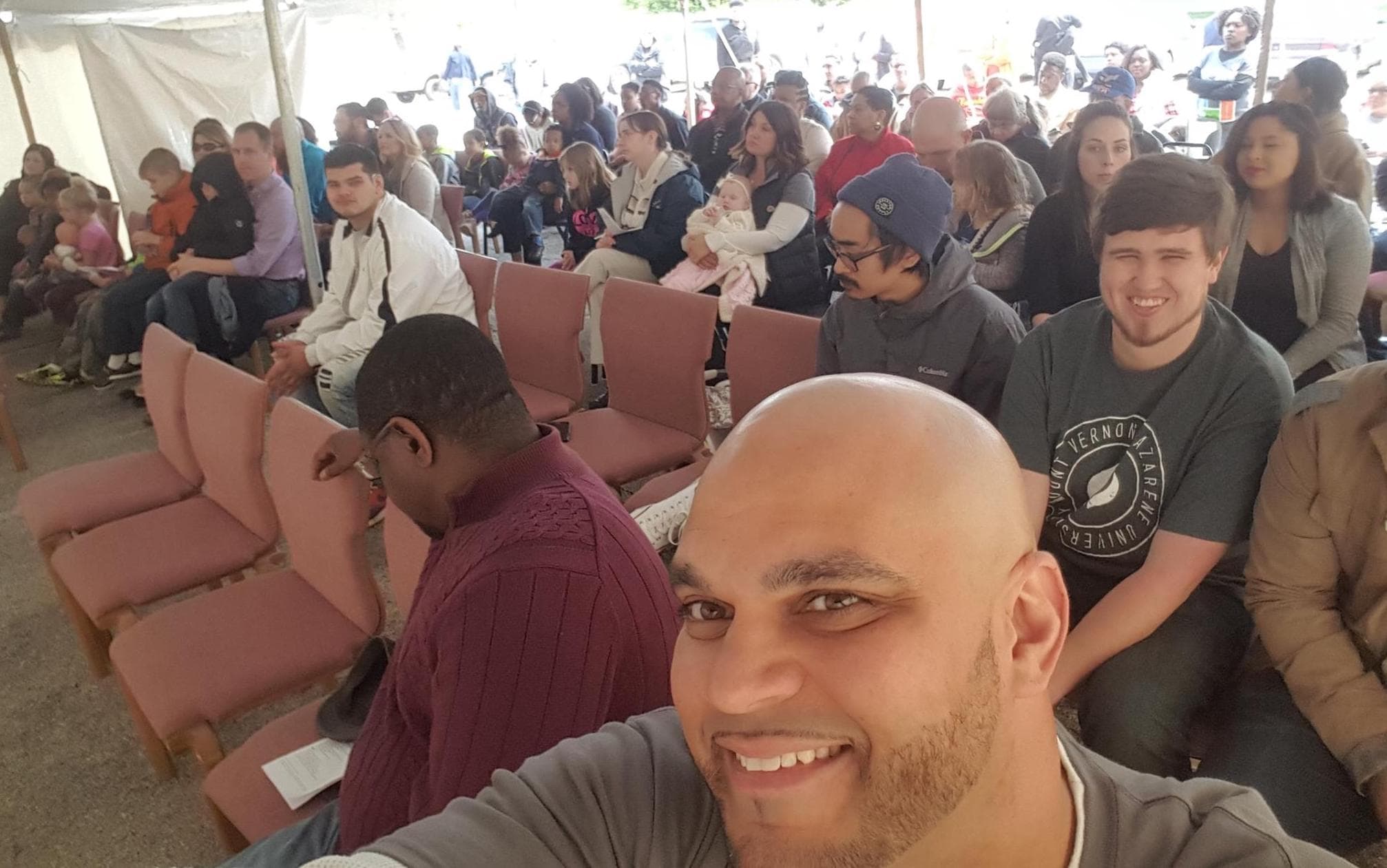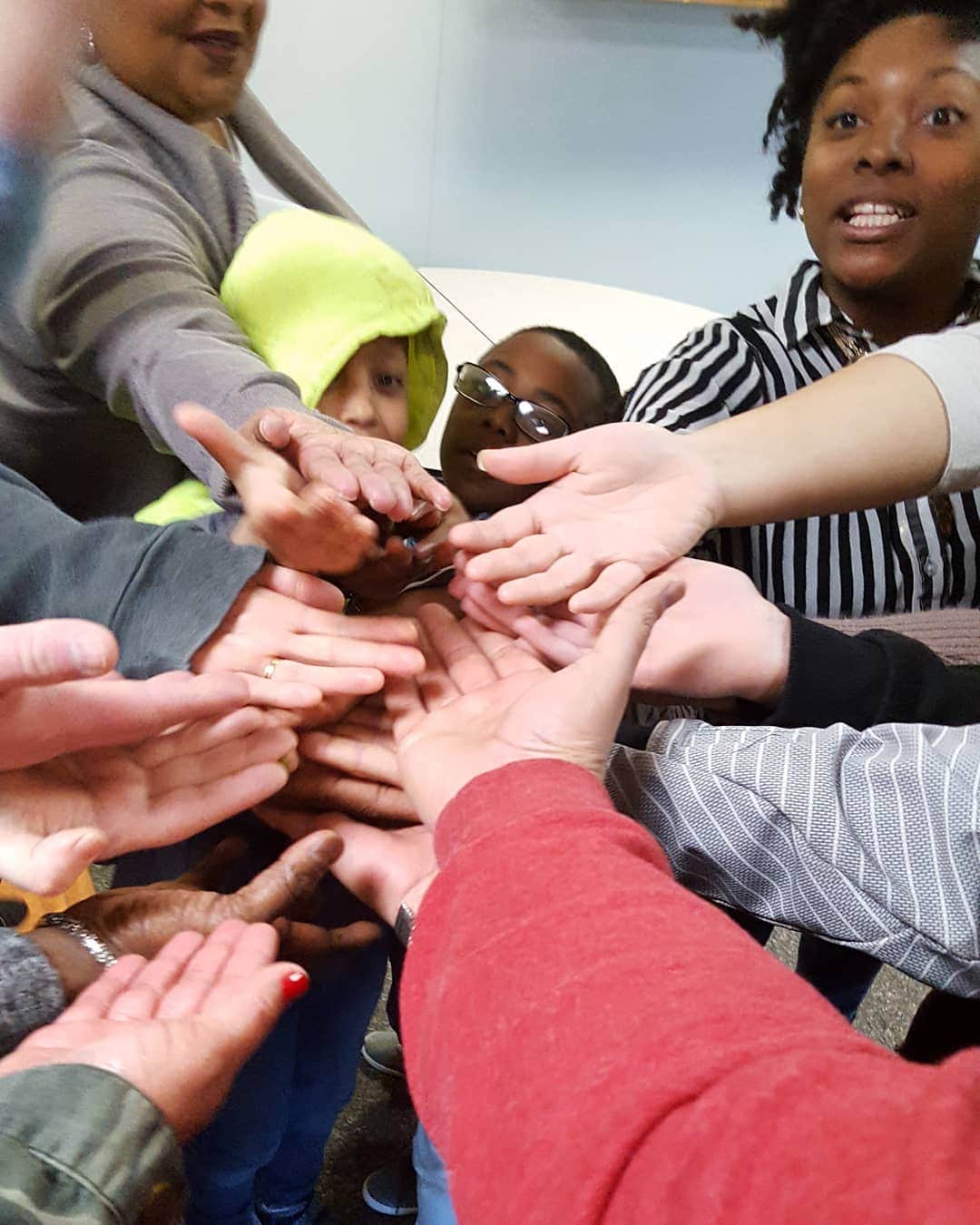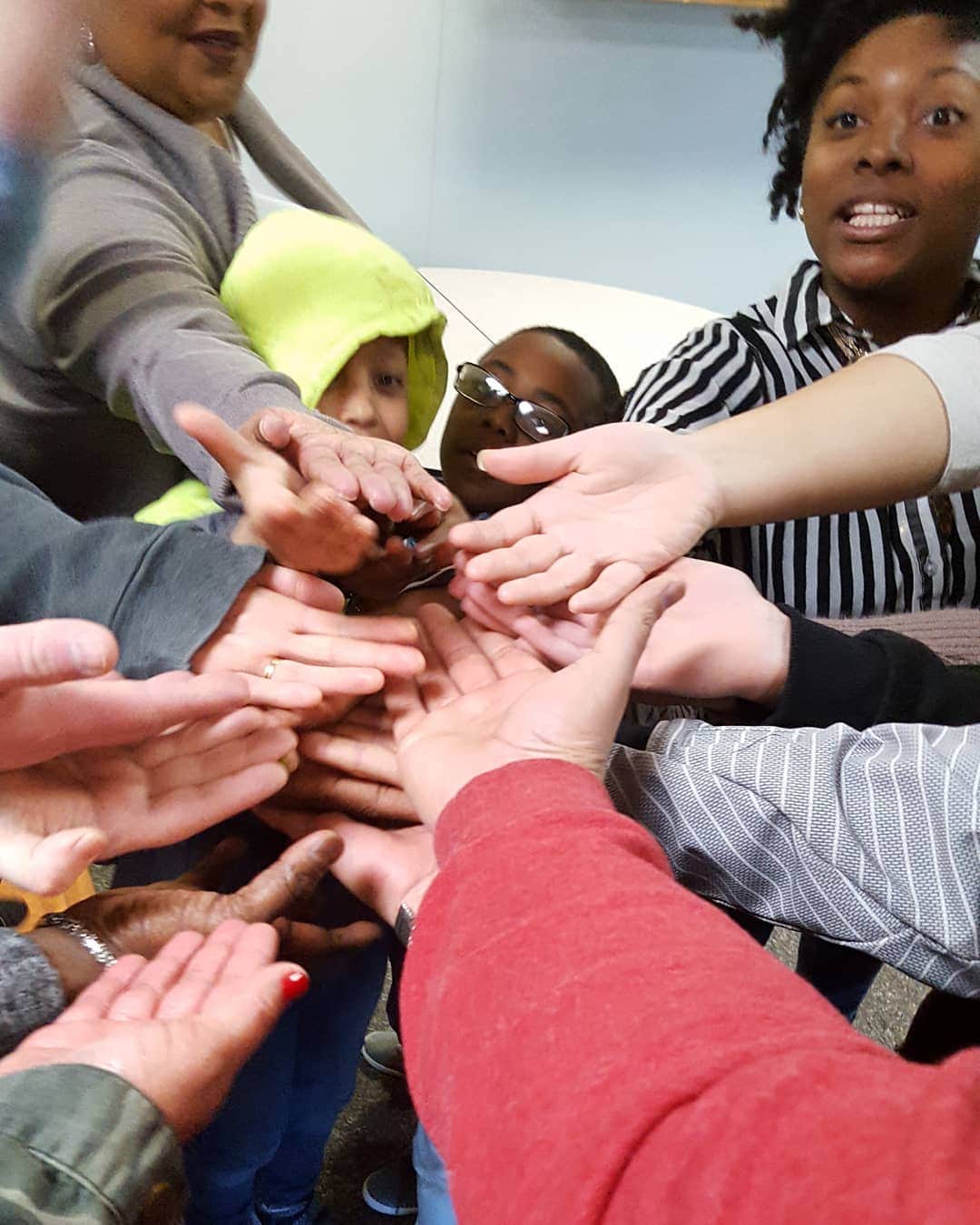[vc_row][vc_column][vc_column_text]

MARION, IN (May 15, 2018) — On a beautiful summer night, vandals painted racist graffiti on the building of Hill’s Chapel Church, a historically black congregation in a community founded by free African Americans in the 1840s.
In addition to spray-painting “KKK,” the vandals wrote other obscenities. “It was an outright act of racism,” said Andrew Morrell, pastor of REAL Community Church (RCC), an intentionally multiethnic, multi-class Covenant plant.
(No one attends Hill’s Chapel, but it remains as a legal 501(c3) entity under which REAL purchased its own building from the local school district. “The Hills Chapel church stands as a testimony to the past, so I think the early legacy of this church is being continued,” Morrell says.)
Before anyone from REAL could paint over the graffiti, however, a white resident of the community with no connection to the church had already done the job. What happened that month reflected the long, sometimes infamous, sometimes hopeful history of Marion.
The town of 30,000 is the site of the last recorded lynching in a northern state. An iconic photo of that event in which a crowd of white people are seen laughing at two men hanging from a tree on August 7, 1930, inspired the Billie Holiday song “Strange Fruit.” A third man, James Cameron, survived and became a famous civil rights activist. (Editor’s note: the linked story about Cameron, that night, and its aftermath, includes a graphic image of the event.)[/vc_column_text][/vc_column][/vc_row][vc_row][vc_column][vc_video link=”https://www.youtube.com/watch?v=dnlTHvJBeP0″][/vc_column][/vc_row][vc_row][vc_column][vc_column_text]RCC meets in central Marion, but it is connected with history through Hill’s Chapel Church, located in Weaver, an unincorporated area outside Marion. REAL stands for Relational, Evangelical, Authentic, Loving. Being real is much easier said than done, says Morrell, because a church seeking to be intentionally multiethnic and multi-class goes beyond having people with different skin color or income sitting next to each other.
Prior to and during the Civil War, blacks weren’t allowed to live in Marion. “So back then, white people would come out from the city to worship with black people at Hill’s Chapel,” says Morrell. The church became part of the abolition movement.
Morrell was called to serve Hill’s Chapel, which had only a few members, with the intent of starting a new congregation. Morrell’s great-great-grandfather, John Weaver, was one of the community’s founders, he says. Morrell desired to plant an intentionally multiethnic congregation eventually led him to connect with the Covenant because of its commitment to racial reconciliation.
Planting an intentionally multiethnic congregation also is helping Morrell work through his own history. He was raised by his black mother after his white father left them, and says that figuring out his biracial identity has been a long, difficult journey.
“I grew up in a black home and church so I leaned toward that,” he says. “But I also knew I was white. Growing up, there were times when my white friends would get mad and call me ni–er. On the other side, my black friends would call me mutt or Oreo or white boy.”
His mother struggled to make ends meet while working long hours. He also had friends whose families were financially well off. “I was growing up in a community where white people seemed to be the people with the haves, and the blacks and the browns were the have-nots, although there certainly were poor white people, as well,” he says.
“Then I also was growing up with the idea that white was right so I was trying to assimilate into white culture,” he adds. “So it all was confusing.”
Morrell says that struggle helped him “to see that there is an enemy that has sought to divide us from the beginning and discovering who I am in Christ has helped me to appreciate both sides.” Discovering and appreciating the differences in the kingdom of God is a core value for RCC, says Morrell.
“I’ve come to see how big and broad the culture is,” Morrell says. “We need each other—black and white, rich and poor, Asian or Mexican. We need each other. All of our cultures play a big part in forming this shalom community.”

When the church hosted a Black Lives Matter event some white families in the congregation were offended and said they wanted it canceled. They viewed the event as being racist toward whites.
In talking with one couple, Morrell said, “This is part of the call of the church—that we stand with the marginalized.” The man responded, “But all lives matter,” and Morrell said, “Yes they do, but the point is that black lives haven’t mattered as much as white lives. It’s been proven over time and time again. It doesn’t mean white lives don’t matter.”
“You have to slow down,” Morrell says. “We have to work through difficult things. We have to be able to speak and to listen and forgive and do the hard work of reconciliation. There are a lot of cultural differences that people didn’t even think were issues for others.”
“The hardest part has been worship,” Morrell says. “We have to learn to worship together. People ask, ‘What style are we going to have? What’s the art like?’ We need to be asking, ‘How can I enter into your world and appreciate the way in which you worship, and how do you enter into my world?’ This is the call that Jesus has on our lives.”
So the church, which has an average attendance of roughly 50 adults and 35 children, keeps talking and living through issues that have divided many churches as they seek to live out that call. “It takes time to accept and value cultural differences,” Morrell says. “Because if this is what we are going to be about, then it has to be modeled.”[/vc_column_text][/vc_column][/vc_row]














